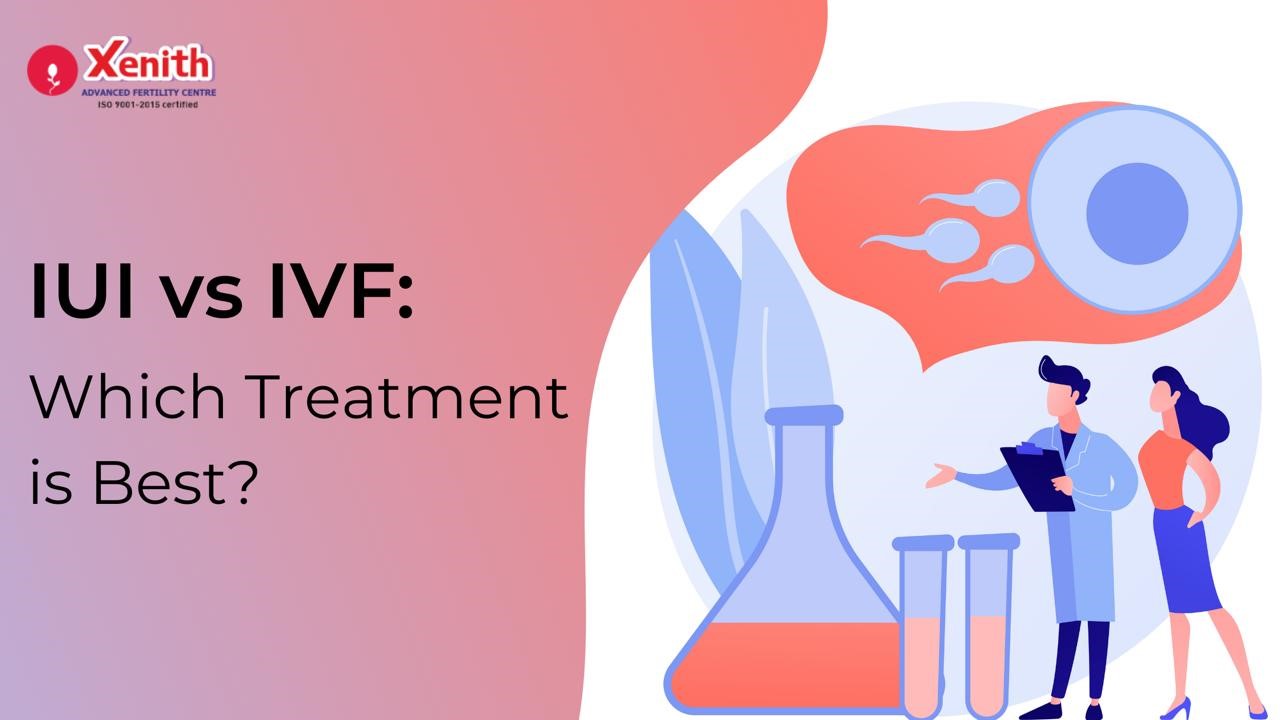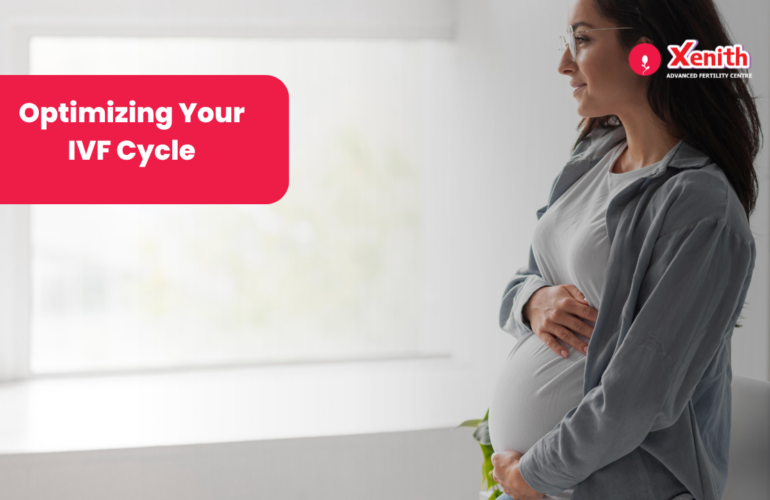Most couples undergoing infertility treatment may find it a conundrum to choose between Intrauterine Insemination (IUI) and In Vitro Fertilization (IVF). The decision is related to several issues and prospective couples should dive deep into understanding IUI and IVF before they make a decision. Your doctor will guide you in the process.
When couples do have a choice between IUI and IVF, here are a few factors they should consider.

Free Thursday Consultation
Book Your AppointmentCosts: A single IUI procedure usually comes to Rs. 10,000. IUI can be done with no medication but in some cases, the doctor may prescribe medication to stimulate the ovaries. These medicines and/or injections would add to the cost of the IUI procedure. While many couples have achieved pregnancy in the first cycle itself, it generally takes 3 to 4 IUI cycles for this treatment to succeed. The total cost of each IUI could be in the range of Rs. 15,000 to Rs. 20,000. An IVF cycle would be in the range of Rs. 90,000 to over Rs. 1.5 lakhs. There might be other costs to consider as well for IVF treatment. You can read all about the costs related to IVF here.
Success rates: IVF treatment is known to have higher success rates than IUI. It is however a more expensive line of treatment as we have seen above. However, on a per cycle basis, the cost of IUI may seem more attractive than the cost of an IVF cycle. But if you consider the odds carefully under the guidance of your doctor, you may find that IVF would be a more affordable treatment that achieves higher rates of success.
Here, at Xenith, we generally see success rates that are higher than the average:
- 70% and above for IVF
- Around 33% for IUI
Procedures: The procedure for IUI is very different from IVF. An important difference? The IUI process is less invasive. The purpose of the IUI process is to speed up the time that sperm take to reach the egg in the fallopian tube.
The tough journey of sperm
On average a man ejaculates around 60 million sperm but only about a very small percentage survive the tough journey through the vagina and cervix and into the uterus where guided by chemicals released from the egg, they find their way up the fallopian tube.
IUI makes the journey a little easier for sperm
In the IUI process, the sperm is collected from your partner (or donor) and “prepared”. Preparation involves separating the sperm from the seminal fluid. Only the sperm is collected in a catheter and inserted at the top of the uterus. From here, the journey to the fallopian tube is much shorter. This increases the chances of sperm fertilizing the egg, particularly in cases where there is mild to moderate issues in sperm count.
In contrast, the IVF process is more invasive. During the IVF procedure, women need to undergo ovarian stimulation to increase both the quantity and quality of eggs. Eggs are retrieved from the ovaries through a small surgical process.
Unlike IUI, fertilization in the IVF process takes place within the very controlled environment of a laboratory. The sperm is carefully injected into the egg by a qualified embryologist and allowed to grow in favorable conditions. The new embryo is carefully monitored and when the time is right, usually within 3 to 5 days, the newly formed embryo is carefully inserted into the uterus which is ready to receive the embryo. A successful embryo transfer results in the attaching of itself to the lining of the uterus – a process called implantation.
There are many advances in IVF technology which include freezing of sperm, eggs, and embryos. This is usually done during the first IVF cycle. Frozen sperm/egg can be used in subsequent cycles.
Safety: Both IUI and IVF are safe treatments. The IVF treatment requires a surgical procedure under general anesthesia; the IUI procedure does not. The proper monitoring, the choice of medication, and general care can greatly reduce side effects caused by medication, particularly in the IVF treatment when the ovaries need to be stimulated to produce more and better-quality eggs.
Couples may benefit from a good diet and exercise regiment starting 90 days prior to either treatment. Acupuncture, yoga, and other alternate therapies may help to reduce stress and anxiety. These changes in your lifestyle can help boost the success of both treatments.
When IUI is not an option for you
For some couples, IUI is not an option. For instance, women who are over 35 are usually requested to undergo the IVF process as egg quantity and quality tend to decline by this age. Age is not the only factor that determines a couple’s need for IVF. Other instances include blocked fallopian tubes, a history of pelvic infections, and male infertility issues. IVF works with a wider range of infertility issues and as said before, has a higher success rate than IUI. Doctors will conduct a thorough evaluation and present the choices you have based on the results of various fertility tests.
Conclusion
After a complete fertility screening, consider your options. Consult with a board-certified reproductive endocrinologist who can guide you in the decision-making process.
Xenith is the best IVF clinic in Pune and the place where you can begin the journey toward making your dreams come true – whether it is IUI or IVF – we truly want to make it happen for you! Schedule a consult with us.





Comments are closed.